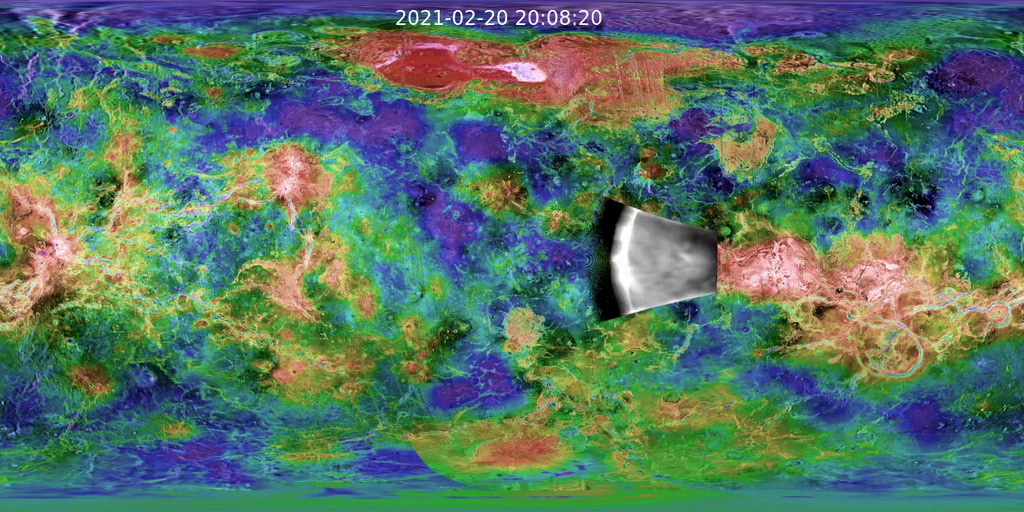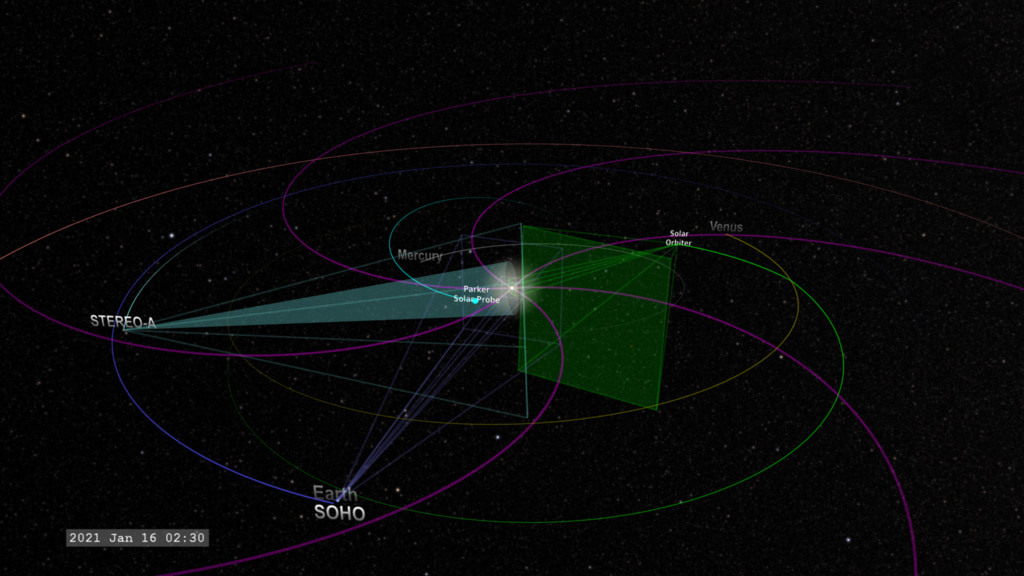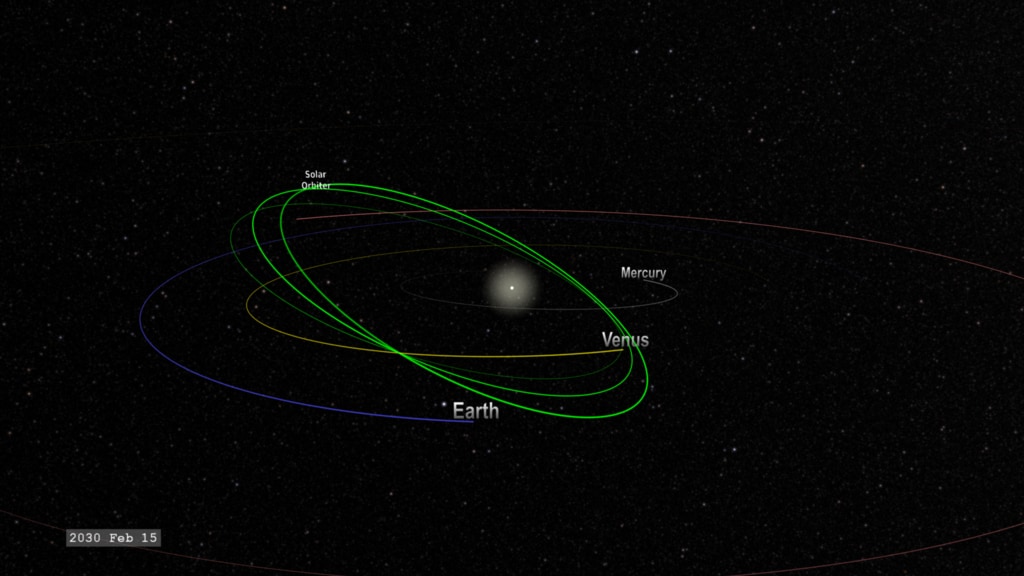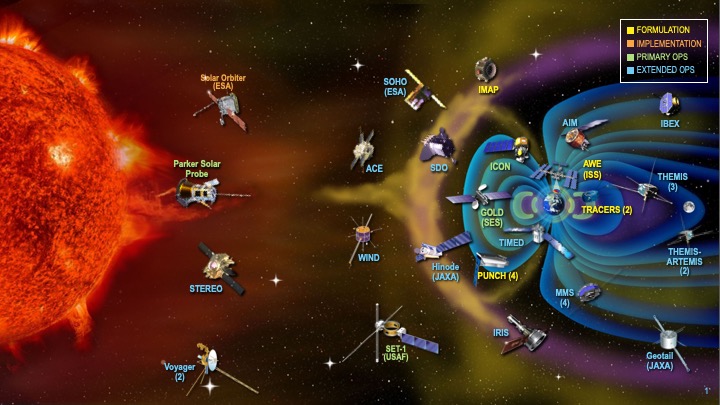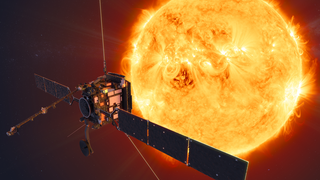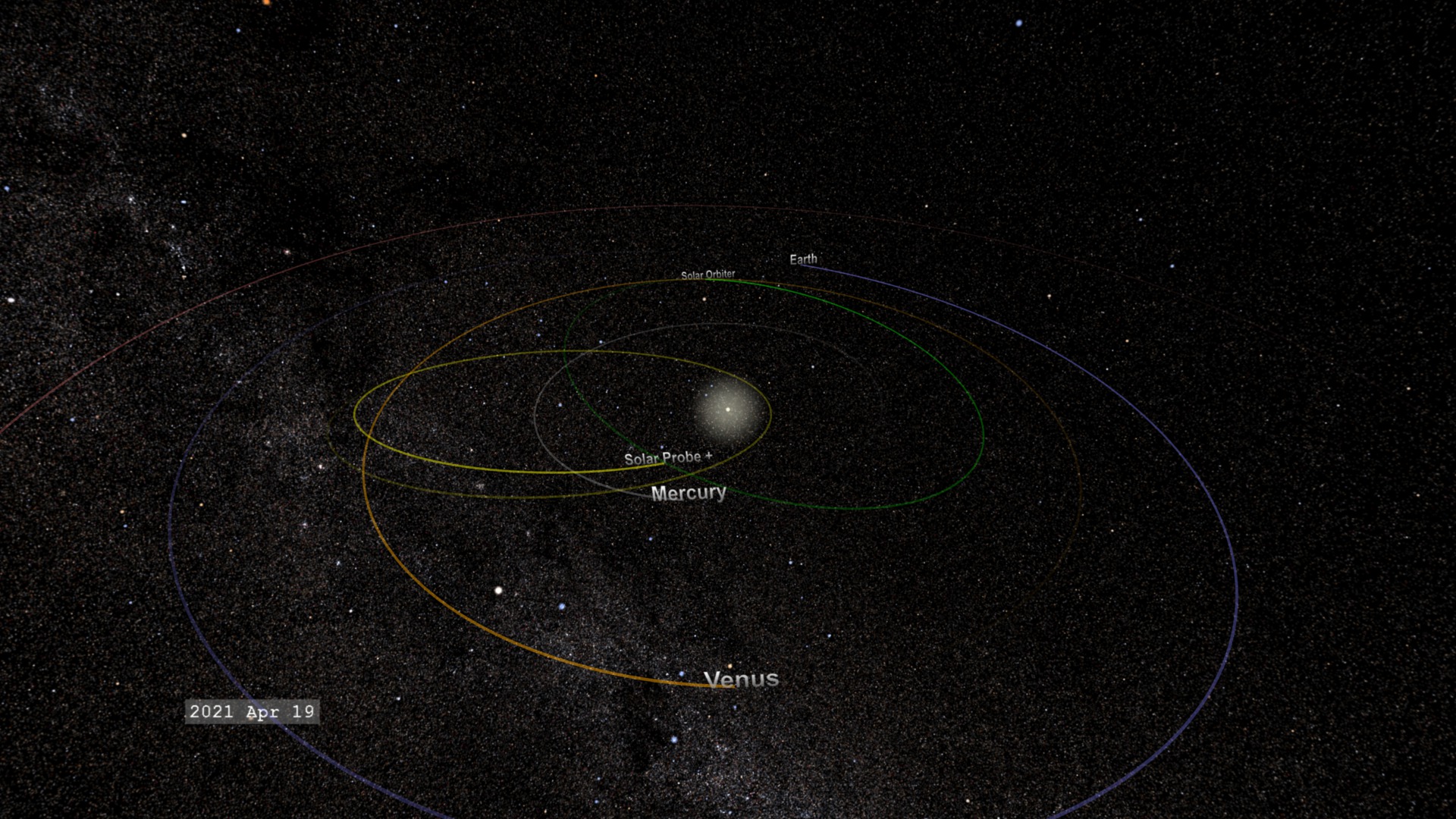Parker Solar Probe and Solar Orbiter Trajectories
This visualization opens near Earth for the launch of Parker Solar Probe August 12, 2018. Then the camera moves around the Sun to match of with Earth again for the launch of Solar Orbiter in 2020. After that, the camera moves in a slow drift around the Sun as the orbits evolve. The Parker Solar Probe orbit fades out after the nominal end of mission in 2025. This version has longer orbit trails to better view orbit changes, and the red along the orbits indicate the nominal science operations portions of the missions.
The next missions scheduled for detailed studies of the Sun and solar atmosphere are Parker Solar Probe and Solar Orbiter.
Parker Solar Probe, launched August 12, 2018, moves in a highly-elliptical orbit, using gravity-assists from Venus to move the orbit perihelion closer to the Sun with each pass. The goal is to get the spacecraft to fly through the corona at a distance of 9.5 solar radii. Primary science operations are conducted when the spacecraft is within 0.25 astronomical units (AUs) from the Sun, so that portion of the orbit is colored red. The nominal end of mission for Parker Solar Probe is 2025, so the orbit fades away after that year.
Solar Orbiter uses a series of Earth and Venus gravity assists to move its orbit perihelion (the closest distance from the Sun) to a distance inside the orbit of Mercury for detailed solar monitoring. The primary science operations for Solar Orbiter are conducted when the spacecraft is within 0.5 AUs from the Sun.
This visualization opens near Earth for the launch of Parker Solar Probe on August 12, 2018. Then the camera moves around the Sun to match of with Earth again for the launch of Solar Orbiter in 2020. After that, the camera moves to a third position as the orbits evolve. The Parker Solar Probe orbit fades out after the nominal end of mission in 2025.
This visualization has a fixed camera oblique view of the inner solar system to observe the orbits of Parker Solar Probe and Solar Orbiter. The Parker Solar Probe orbit fades out after the nominal end of mission in 2025.
This visualization has a fixed camera view of the inner solar system above the ecliptic to observe the orbits of Parker Solar Probe and Solar Orbiter. The Parker Solar Probe orbit fades out after the nominal end of mission in 2025.
This visualization presents a wide view of the orbit of Parker Solar Probe.
The visualizations below were generated before the launch of Parker Solar Probe, assuming a launch date of July 31. 2018. They are included here for reference.
PRELAUNCH VERSION. Generated assuming launch was July 31, 2018. This visualization opens near Earth for the launch of Parker Solar Probe at the end of July 2018. Then the camera moves around the Sun to match of with Earth again for the launch of Solar Orbiter in 2020. After that, the camera moves in a slow drift around the Sun as the orbits evolve. The Parker Solar Probe orbit fades out after the nominal end of mission in 2025. This version has longer orbit trails to better view orbit changes, and the red along the orbits indicate the nominal science operations portions of the missions.
PRELAUNCH VERSION. Generated assuming launch was July 31, 2018. This visualization opens near Earth for the launch of Parker Solar Probe at the end of July 2018. Then the camera moves around the Sun to match of with Earth again for the launch of Solar Orbiter in 2020. After that, the camera moves to a third position as the orbits evolve. The Parker Solar Probe orbit fades out after the nominal end of mission in 2025.
PRELAUNCH VERSION. Generated assuming launch was July 31, 2018. This visualization has a fixed camera oblique view of the inner solar system to observe the orbits of Parker Solar Probe and Solar Orbiter. The Parker Solar Probe orbit fades out after the nominal end of mission in 2025.
PRELAUNCH VERSION. Generated assuming launch was July 31, 2018. This visualization has a fixed camera view of the inner solar system above the ecliptic to observe the orbits of Parker Solar Probe and Solar Orbiter. The Parker Solar Probe orbit fades out after the nominal end of mission in 2025.
PRELAUNCH VERSION. Generated assuming launch was July 31, 2018. This visualization presents a wide view of the orbit of Parker Solar Probe.
Credits
Please give credit for this item to:
NASA's Scientific Visualization Studio
-
Visualizer
- Tom Bridgman (Global Science and Technology, Inc.)
-
Producer
- Karen Fox (ADNET Systems, Inc.)
-
Scientists
- Angelos Vourlidas (Johns Hopkins University/APL)
- William T. Thompson (ADNET Systems, Inc.)
- Holly Gilbert (NASA/GSFC)
- Chris St. Cyr (NASA/GSFC)
- Geoffrey F. Brown (Johns Hopkins University/APL)
-
Technical support
- Ian Jones (ADNET Systems, Inc.)
- Laurence Schuler (ADNET Systems, Inc.)
Release date
This page was originally published on Tuesday, June 5, 2018.
This page was last updated on Sunday, February 2, 2025 at 12:10 AM EST.
Missions
This page is related to the following missions:Datasets used
-
SPICE Ephemerides (SPICE Ephemerides)
ID: 755Satellite and planetary ephemerides
See all pages that use this dataset -
DE 431
ID: 985Planetary ephemerides SPICE kernel
See all pages that use this dataset
Note: While we identify the data sets used on this page, we do not store any further details, nor the data sets themselves on our site.
